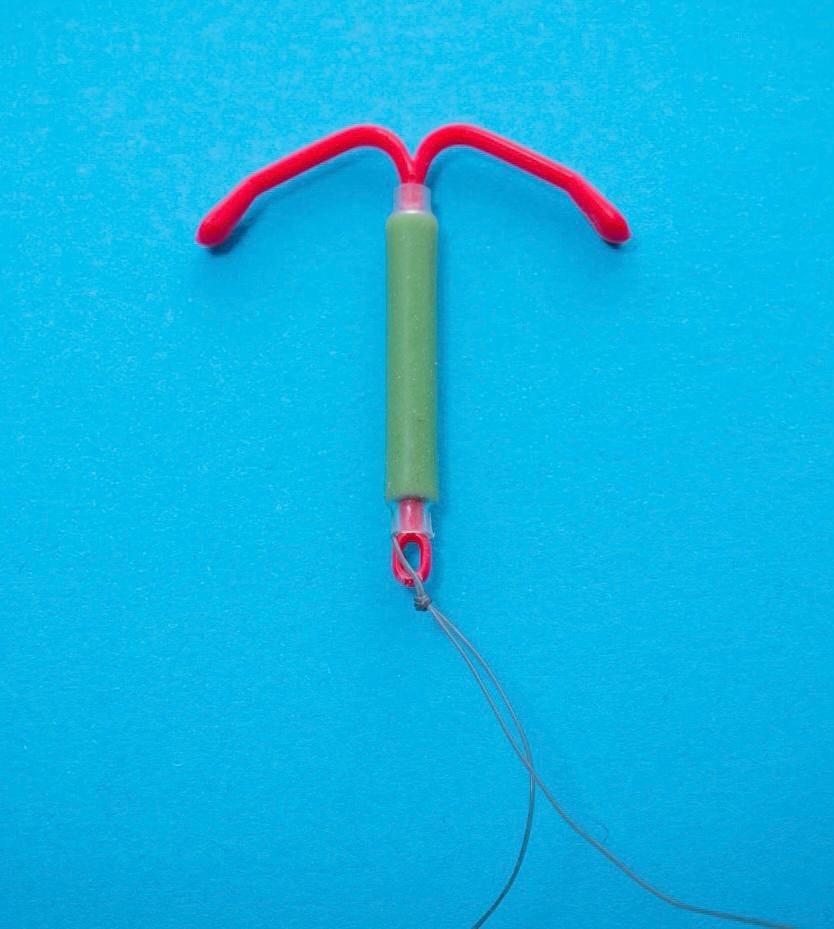An intrauterine device (IUD) is one of the most popular and effective forms of birth control. It is rare to become pregnant, but it is still possible. An IUD has a 99.7% efficacy rate. Becoming pregnant with an IUD isn’t common, but it has been seen to happen.
An IUD is a popular choice for women who don’t like taking pills and want a more effective contraceptive method. In Nigeria, it has since grown due to its affordability. Becoming pregnant with this device is dangerous and could harm you and the fetus. Before inserting an IUD, check with your healthcare provider for the pros and cons.
This article explains the possibility of getting pregnant with an IUD, what happens when you get pregnant, the risk factors, and the best options when you get pregnant.
What is an IUD?
An IUD (intrauterine device) is a T-shaped device inserted into your vagina to prevent pregnancy. It is reversible; your healthcare provider can always remove it if you want to discontinue use.
The insertion process takes around 10 minutes and happens in your healthcare provider's office. There are two categories of an IUD: copper IUDs and hormone-releasing IUDs. They all have different lifespans.
Types of IUDs in Nigeria
There are two types of IUDs popular in pharmacies and hospitals in Nigeria. They are:
- Hormone-releasing IUDs: These group work by releasing the pregnancy hormone, progestin, thus preventing pregnancy. They thicken cervical mucus and prevent sperm mobility in the vagina. They also prevent ovulation and the release of eggs from the ovary. The popular types of hormone-releasing IUDs are Mirena, Skyla, and Kyleena. It is recommended to avoid sexual intercourse after seven days, as it doesn’t take effect till then.
- Copper IUD: Unlike the hormone-releasing IUDs, they release no hormones. It inhibits sperm movement and kills sperm. It is more fast acting and prevents pregnancy immediately after sexual intercourse. The most popular type is Paragard. It has a life span of 10 years.
What are the side effects of IUDs?
Hormone-releasing IUDs have lesser side effects. Some of them include:
- Light or irregular periods
- Breast soreness
- Mood changes
- Acne
- Apettite changes
Side effects of copper IUDs:
- Heavier and painful periods
- Spotting during periods
- Painful sex
Can my IUD move from its original position?
Yes, it is entirely possible for your IUD to move from its original point. Some of the signs to note when you have a displaced IUD:
- You don’t feel the strings
- You feel the strings during sexual intercourse
- Strings are too short or long in length
- Abnormal vaginal bleeding
What happens if I get pregnant with an IUD?
Having an IUD increases the risk of you having an ectopic pregnancy. If you become pregnant using an IUD, it’s 90% an ectopic pregnancy. If you are found pregnant with an IUD, the first step will be to determine the type of pregnancy, which could be either normal or ectopic.
What is an ectopic pregnancy?
An ectopic pregnancy is when a fertilized egg implants in a fallopian tube or other location outside the uterus, posing serious health risks. However, an ectopic pregnancy is dangerous and causes miscarriages, preterm delivery, uterine infections, and death in some cases.
What are the symptoms of being pregnant with an IUD?
Pregnancy with an IUD in place typically has the same symptoms as any regular pregnancy — including breast tenderness, nausea, and fatigue. If you’re experiencing those symptoms and have missed your period, call your doctor immediately to find out if you’re pregnant. Some common includes:
- Fatigue
- Nasue
- Mood swings
- Loss of appetite
- Missed period
- Painful and enlarged breasts
Who shouldn’t use an IUD in Nigeria?
IUDs are relatively safe. However, it may be different for women who have these health conditions:
- Pregnancy
- Liver disease
- Cancer
- A history of pelvic inflammatory disease
- History of ectopic pregnancy
- HIV positive
- Copper allergy
How much is an IUD in Nigeria?
IUDs are affordable both in public and private hospitals in Nigeria. Copper IUDs may cost between #1,500-#2,000 in public hospitals, while #2,000 to #2,500 in private hospitals. Mirena may cost more because it needs to be preloaded. It costs between 20,000-30,000.
Conclusion
IUDs are an incredible form of birth control for many women, but no contraceptive is 100% effective. If you get pregnant with an IUD, consult your healthcare provider immediately to prevent further complications. The IUD may be removed.
However, the pregnancy will be high-risk if you want to keep the baby. Discuss your options with your healthcare provider to stay safe.










Comments